
Balding at 18: Understanding and Addressing Early Hair Loss
August 3, 2024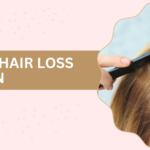
Extreme Hair Loss in Women
September 11, 2024Sudden hair loss can be a distressing experience for males, leading to anxiety and a drop in self-esteem. Various factors contribute to this condition, making it essential to identify the main reasons for sudden hair loss in males and its effective treatment.
According to Dr. Anju Methil, one of the best dermatologist in Andheri, Mumbai, “Addressing the underlying issues early can significantly improve treatment outcomes and restore hair health.”
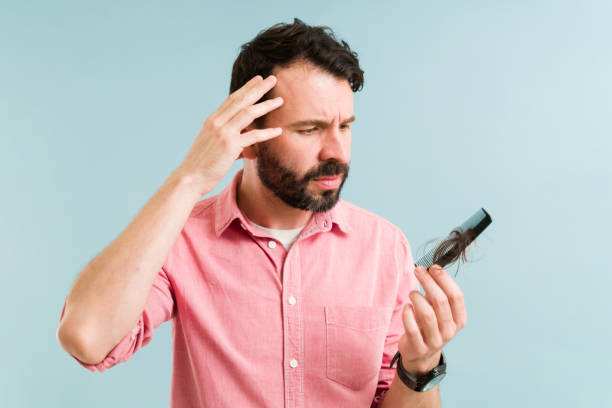
Dr. Methil has 28+ years of extensive expertise in diagnosing and treating hair loss. At Skin and Shape Clinic, she offers comprehensive and advanced hair loss treatment in Mumbai, tailored to individual needs, ensuring optimal outcomes.
Worried about sudden hair loss? Consult with a seasoned specialist today. Book your appointment for expert advice.
Are you noticing more hair fall than usual? Let’s explore the causes of sudden hair loss in men.
What are the Reasons for Sudden Hair Loss in Males?
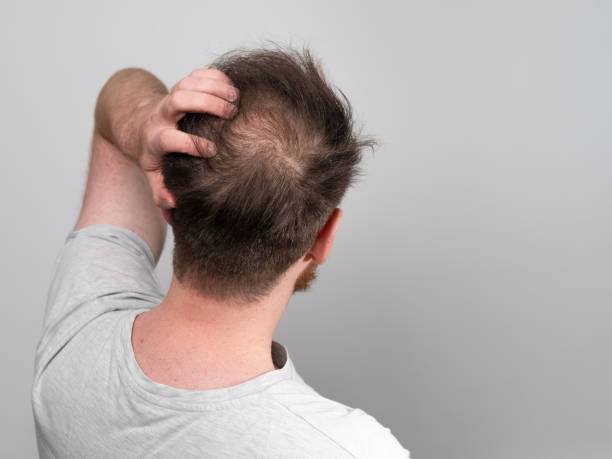
Understanding the reasons of sudden hair loss in males is crucial for effective treatment. Here are some common reasons:
Genetic Factors:
Male pattern baldness, medically known as androgenetic alopecia, is the most common cause of hair loss in men. It is hereditary and can start in the late teens or early twenties.
Hormonal Changes:
Hormonal imbalances, especially involving androgens, can trigger hair loss. Conditions like thyroid disorders can also contribute to this issue.
Stress:
Both physical and emotional stress can lead to temporary hair loss, known as telogen effluvium. Stress pushes hair follicles into the resting phase, causing hair to fall out more easily.
Nutritional Deficiencies:
A lack of essential nutrients such as iron, zinc, and vitamins can weaken hair follicles and lead to hair loss.
Medical Conditions:
Diseases such as alopecia areata, scalp infections, and chronic illnesses can cause hair to thin or fall out suddenly.
Medications:
Certain drugs, including those used for treating cancer, arthritis, depression, heart problems, and high blood pressure, can result in hair loss.
Lifestyle Factors:
Poor diet, smoking, and excessive alcohol consumption can negatively affect hair health, leading to loss.
Chemical Treatments:
Overusing hair dyes, bleaches, and styling products can damage hair follicles and lead to hair loss.
Experiencing sudden hair loss? Get professional help now. Schedule your consultation with an expert today.
Wondering how to identify if your hair loss is sudden? Here’s what you need to know.
What are the Signs of Sudden Hair Loss in Males?

- Thinning Hair: Noticeable reduction in hair volume, especially on the top of the head.
- Receding Hairline: Hair starts to thin and recede from the forehead, forming an M-shaped hairline.
- Bald Patches: Sudden appearance of round or patchy bald spots on the scalp.
- Excessive Hair Shedding: More hair falling out during brushing, showering, or on your pillow.
- Widening Part: The parting line in the hair becomes wider, indicating hair loss on the scalp.
- Overall Hair Loss: General decrease in hair density and coverage across the scalp.
- Shorter Hair Growth Cycle: New hair grows back finer and shorter, leading to visible thinning.
- Itchy or Flaky Scalp: Scalp irritation or dandruff with hair loss.
- Change in Hair Texture: Hair becomes finer, weaker, or more brittle.
- More Visible Scalp: Increased visibility of the scalp through the hair.
Are you noticing signs of hair loss? Take action today. Get in touch with a hair specialist for a detailed assessment. Book an appointment.
Is your hair loss indicating a more serious health issue? Let’s discuss.
Can Hair Loss be a Sign of Something Serious?
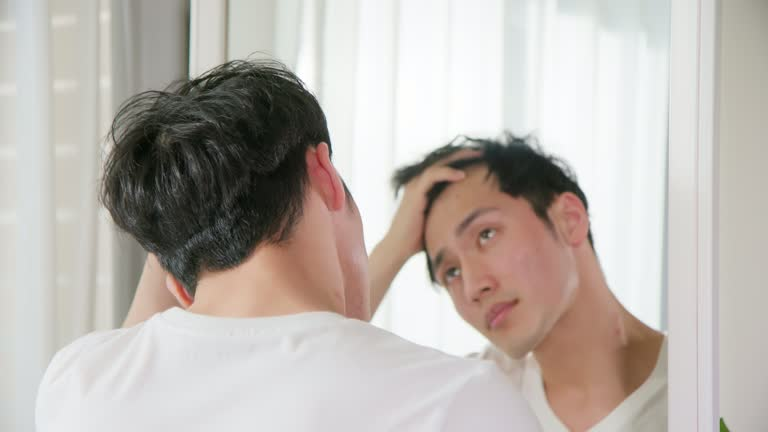
Hair loss can sometimes indicate underlying health issues. Conditions like thyroid disorders, diabetes, and anemia can lead to significant hair loss. For instance, thyroid imbalances affect hormone levels, directly impacting hair growth.
Similarly, autoimmune diseases like alopecia areata and lupus can attack hair follicles, resulting in hair loss. Scalp infections, such as ringworm, cause hair loss and lead to red, itchy patches on the scalp. Understanding these signs and seeking prompt medical attention is crucial for early diagnosis and effective treatment.
“Hair loss should not be ignored, especially when accompanied by other symptoms like fatigue, weight changes, or skin rashes,” advises Dr. Anju Methil, an eminent cosmetologist and dermatologist in Andheri, Mumbai. Consulting with a specialist can help identify severe conditions and provide appropriate interventions.
Experiencing other symptoms alongside hair loss? Consult an expert for a comprehensive evaluation and effective solutions.
Now, let’s discuss the treatments available for hair loss.
Treatment Options for Sudden Hair Loss in Males
Various treatments are available to address sudden hair loss in males. The choice of treatment depends on the underlying cause and individual needs.
1. Medications:
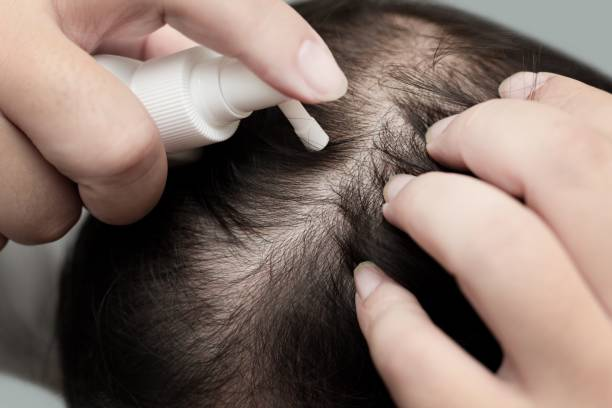
Minoxidil and finasteride are prescribed to promote hair growth and prevent further loss.
2. Nutritional Supplements:
Supplements like Biotin, Vitamin D, Iron, and Zinc can support hair health and growth.
3. Low-Level Laser Therapy (LLLT):
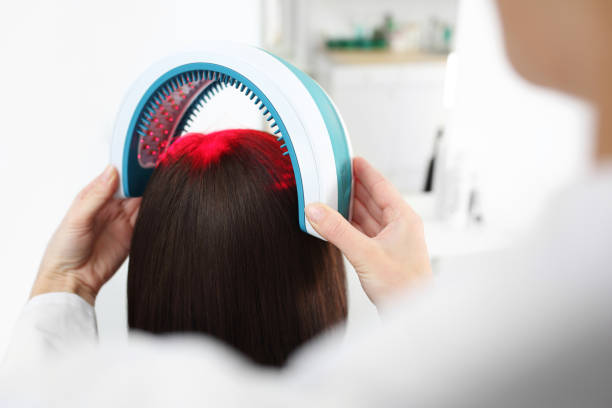
This non-invasive treatment uses red light to stimulate hair follicles. It helps promote hair growth and reduce hair thinning. It can be administered through in-office devices or at-home laser caps and combs.
4. Platelet-Rich Plasma (PRP) Therapy:
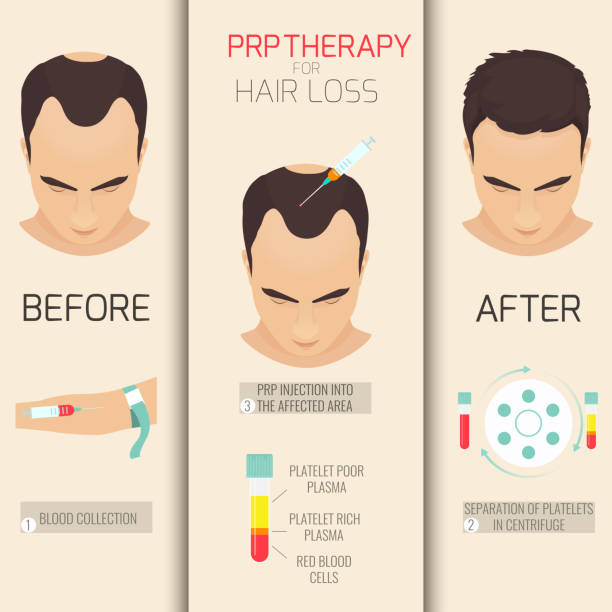
PRP hair therapy involves drawing the patient’s blood, processing it to concentrate the platelets, and injecting them into the scalp. PRP contains growth factors that can stimulate hair follicles, promote healing, and encourage new hair growth.
5. Mesotherapy:
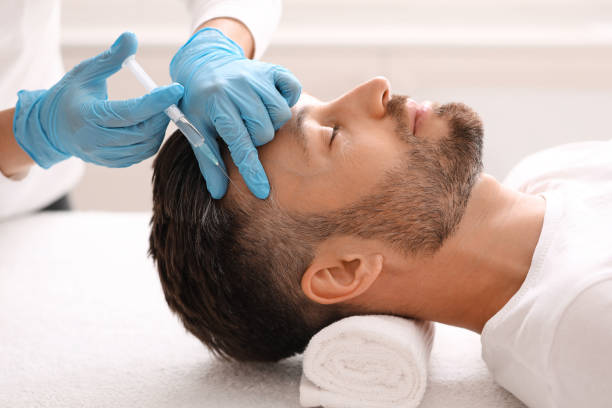
It involves injecting vitamins, minerals, amino acids and medications directly into the scalp to stimulate hair growth and improve blood circulation. This non-surgical treatment helps nourish hair follicles, leading to stronger and healthier hair.
6. Hair Transplant:

At Skin and Shape Clinic, seasoned hair transplant doctors offer natural-looking, advanced hair transplant in Andheri, Mumbai. The hair transplant process entails extracting hair follicles from the donor area (usually the back of the scalp) and transplanting them to the thinning or balding areas. Techniques like FUE and DHI offer effective and permanent solutions for hair restoration.
7. Lifestyle Changes:

- Stress Management: Chronic stress can lead to hair loss. Techniques such as meditation, exercise, and adequate sleep can help manage stress levels.
- Healthy Diet: A balanced diet rich in vitamins and minerals supports overall hair health. Include foods high in protein, iron, and vitamins A, C, and E.
- Proper Hair Care: Avoid overuse of harsh hair treatments, heat styling, and tight hairstyles that can damage hair follicles. Use gentle shampoos and conditioners suitable for your hair type.
Conclusion
Understanding the causes of sudden hair loss in males and recognizing the signs can help find the proper treatment. Consulting with an expert can provide personalized guidance and help you choose the most appropriate treatment plan.
At Skin and Shape Clinic, Dr. Anju Methil offers personalized, cutting-edge hair loss solutions. Whether dealing with sudden hair loss or seeking preventive measures, early intervention and professional advice are crucial to achieving the best results.
Ready to address your hair loss concerns? Reach out to an experienced professional for expert care. Book your appointment now.
Frequently Asked Questions:
Can you reverse hair loss?
Treatments such as medications, PRP, mesotherapy, and lifestyle changes can help reverse hair loss to some extent. Advanced methods such as hair transplants can offer a permanent solution to hair restoration.
Does hair loss happen quickly?
Hair loss can occur gradually or suddenly, depending on the underlying cause.
Is it normal to lose 150 hairs a day?
Shedding 50 to 150 hairs daily is normal. However, sudden, excessive hair loss may indicate an issue.
How can I prevent hair loss?
Maintain a healthy diet, manage stress, avoid harsh hair treatments, and use gentle hair care products to prevent hair loss.
How long does it take to see results from hair loss treatments?
Results can vary, but most treatments require several months to show noticeable improvement.

